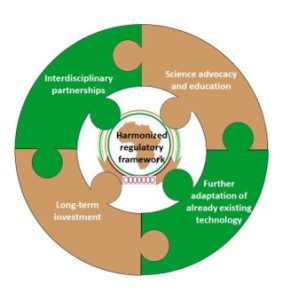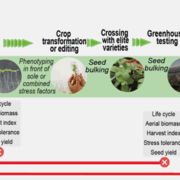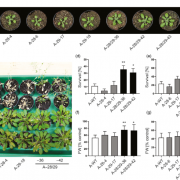Comment: Unlocking the potential of agricultural biotechnology in Africa
 Agricultural Biotechnology has the potential to significantly increase production, alleviate hunger, and improve global food security. However, its adoption in Africa lags behind other regions, facing challenges rooted in strict and varying policies, inadequate infrastructure, and insufficient economic incentives for private-sector investment. Despite some successful initiatives in the past, the key to success lies in achieving a more extensive and widespread implementation. This paper identifies five practical opportunities for delivering and adopting agricultural biotechnology, suggesting specific actions to address the current challenges. A crucial aspect is the need for greater collaboration and the establishment of a unified market and regulatory environment. Incentives for incoming funding and grants from the private sector should be established, with a focus on long-term development, including talent training, retention, and infrastructure development and maintenance. Emphasizing ongoing education and communication between scientists and the public is vital for the successful adaptation and acceptance of new technologies. In light of these considerations, any new adaptation plan should prioritize education, transparency, and collaboration. This approach ensures the successful integration of agricultural biotechnology in Africa, ultimately leading to enhanced productivity and improved food security. (Summary by Villő Bernád) Nature Plants 10.1038/s41477-023-01604-9
Agricultural Biotechnology has the potential to significantly increase production, alleviate hunger, and improve global food security. However, its adoption in Africa lags behind other regions, facing challenges rooted in strict and varying policies, inadequate infrastructure, and insufficient economic incentives for private-sector investment. Despite some successful initiatives in the past, the key to success lies in achieving a more extensive and widespread implementation. This paper identifies five practical opportunities for delivering and adopting agricultural biotechnology, suggesting specific actions to address the current challenges. A crucial aspect is the need for greater collaboration and the establishment of a unified market and regulatory environment. Incentives for incoming funding and grants from the private sector should be established, with a focus on long-term development, including talent training, retention, and infrastructure development and maintenance. Emphasizing ongoing education and communication between scientists and the public is vital for the successful adaptation and acceptance of new technologies. In light of these considerations, any new adaptation plan should prioritize education, transparency, and collaboration. This approach ensures the successful integration of agricultural biotechnology in Africa, ultimately leading to enhanced productivity and improved food security. (Summary by Villő Bernád) Nature Plants 10.1038/s41477-023-01604-9









